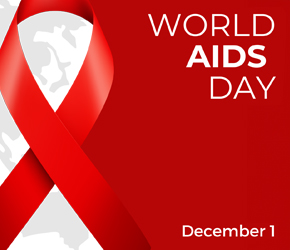Heart-Healthy Practices Strengthen Your Resolve

As we ring in the New Year, we can empower ourselves using the lessons from 2020. This past year, we sheltered in place in order to protect ourselves and communities from transmission of the COVID-19 virus. Although necessary, this decision marked the beginning of a sedentary lifestyle for many. Reduced physical activity can bring about many long-term consequences, including psychological and physiological effects. Developing a realistic exercise plan this year will enable you to strengthen your cardiovascular and mental health, as well as your immune system.
In order to protect our heart health, we must prioritize healthy lifestyle choices. The World Health Organization (WHO) 2020 guidelines on physical activity recommend 50–300 min of moderate-intensity, or 75–150 min of vigorous-intensity physical activity per week for adults. Among children and adolescents, an average of 60 min/day of moderate-to-vigorous intensity aerobic physical activity across the week provides many health benefits. The guidelines recommend regular muscle-strengthening activity for all age groups. Additionally, reducing sedentary behaviors is recommended across all age groups and abilities.
Adjusting our daily routine to include yoga or Pilates is a simple first step that can have significant benefits. Virtual exercise classes provide a prime opportunity to connect with others and get moving. Those of us who live with others can invite them to exercise with us—it’s best as a group activity. In addition to its benefits for our body, exercise positively impacts our mental health, strengthening our resolve to eat responsibly and avoid overeating.
 “As at any time of the year, you should be eating a healthy, balanced diet low in saturated fat, moderate in carbohydrates and protein, and high in fruits and vegetables. Integrate heart-healthy foods into your diet, such as leafy green vegetables, whole grains, and berries. Your registered dietitian can tell you how many servings of carbohydrates you should be eating daily and you can stick to that. Although some carbohydrates are better for you than others, it’s the total number of carbohydrates that counts and not the form you’re eating them in. Fat should also be kept to a minimum.” – Gloria Cabral, RD, LDN, Registered Dietitian/Nutritionist at Care Resource.
“As at any time of the year, you should be eating a healthy, balanced diet low in saturated fat, moderate in carbohydrates and protein, and high in fruits and vegetables. Integrate heart-healthy foods into your diet, such as leafy green vegetables, whole grains, and berries. Your registered dietitian can tell you how many servings of carbohydrates you should be eating daily and you can stick to that. Although some carbohydrates are better for you than others, it’s the total number of carbohydrates that counts and not the form you’re eating them in. Fat should also be kept to a minimum.” – Gloria Cabral, RD, LDN, Registered Dietitian/Nutritionist at Care Resource.
Our medical providers can address primary care concerns, including cardiovascular health, and provide suggestions for staying healthy during this pandemic. In order to meet the needs of new and existing patients who are remaining at home, Care Resource is offering these services via telehealth. To make an appointment, please visit careresource.org or call (305) 576-1234 to pre-register.
Let’s keep our eyes on the year ahead. Integrating exercise and nutritious food is a preventative health practice that protects our hearts and minds. With the support provided by Care Resource’s medical providers, our community can rest assured that we will get through this together.















